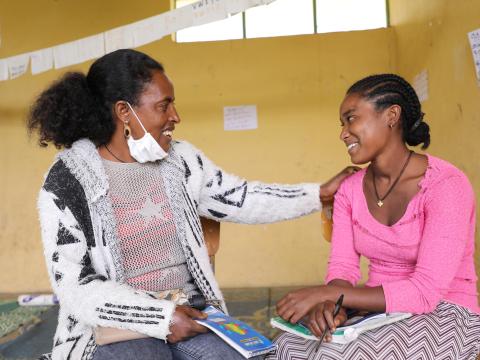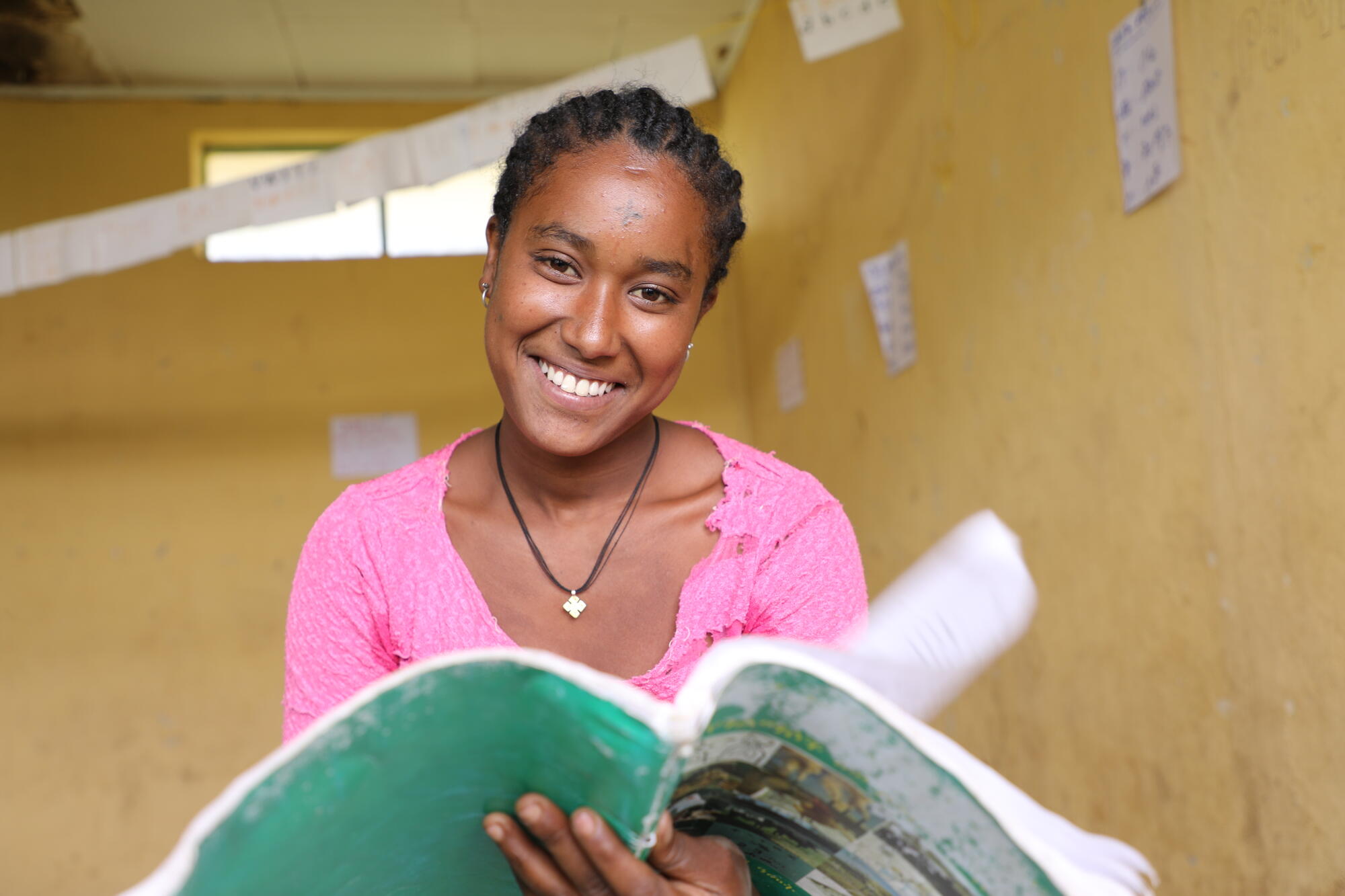Begin at the beginning: World Vision's approach to empowering women, break the bias and fight gender inequality

How is it that we are still dealing with gender inequality, bias, and stereotype issues when women comprise half of the world’s population?
Yes, gains have been made over the years, but they have generally involved the breaking of barriers that never should have been erected in the first place. Countless books, shared anecdotes, frustrating conversations, and investments later, to our dismay, we are still looking at data that demonstrates gender inequality.
On account of this, World Vision believes that we need to begin at the beginning, if we want to ever break the loop and make a grounding change, for good. Below are some approaches the organisation follows to ensure that.
- Keep girls in school and teach them their worth
Many young girls across the world already carry internalised beliefs about their place, worth, and role in society as dependent, vulnerable, or incapable and are told to act accordingly, reinforcing gender stereotypes and preventing girls from realising their full potential.
Empowering a girl is a ladder that can lead the world into change, and bias is the wall that tries to stop her – It is a wall that separates us from seeing the fact that WE ARE ALL EQUAL!
We believe that education is a girl’s ticket out of suppression and stereotypical young and adult life. However, girls are often prevented from attending school even when they’re eager to do so. She might be walking longer distances to retrieve water for her families – water that is often contaminated or unsanitary -, might be too tired or hungry to concentrate in school, or too sick from waterborne diseases to attend class at all, or might be getting forced to get married before she is of age.
Wherever we work, we work to champion the rights of girls and we pave ways that enable them to stay in school so that they grow up understanding their worth and rights.
Here is a pinch from the mesmerising stories of Bereket and Wubalem; two young girls who stayed in school by virtue of World Vision’s interventions.
Bereket is a 17-year-old girl from Dada village in shashego district, where having a water tap nearby was considered a hopeless dream. The dreading 4 hours walk, every morning, to and from a water source to haul a jerry can of water that is barely enough for her family of eleven, has always been an obstacle she neither had the knowledge nor the might, to overcome.
World Vision, the child-focused humanitarian and development organization, which has always been at the forefront to respond to vulnerable children’s felt needs, couldn't let Bereket bear the burden any longer.
World Vision assessed, identified, prioritised, and addressed the community’s urgent needs by drilling borehole in Dada village. Now, Bereket doesn’t need to wake up early and walk for hours to a dirty water source; she is no longer weary, she won't miss school or arrive late because she has tap water located a three-minute walk from her home.

A 14-year-old and grade seven student, Wubalem from Libo Kemkem District was to be married off to a person she didn't even know. But World Vision's training on the physical and psychological impacts of early/child marriage and on how to report cases enabled her to stand up for herself and end the marriage before it began.

Read both young girls' stories here (Bereket) and here (Wubalem), and sponsor a girl to help us keep girls in school.
- Breaking the bias and promoting gender equality start at home
A UN gender study found nine out of 10 (90%) of people are biased against women. The consequence of these biased opinions is it robs women of dignity, and makes the recognition of equal humanity difficult. This alarming number needs to be tackled at the source –from our vert our homes, because equality at home results in equality in society.
In Ethiopia, where a patriarchal norms that disregards the rights of women governs the majority of the society, empowering women alone will never be enough to break the bias. We reckon men are just as crucial in the journey to breaking down stereotypes, discrimination, and bias as women. This is why World Vision is committed to working with men as allies and agents of change.
In the districts of Daro Labo and Siraro, it is popularly believed that women’s role is to spend much of their time engaged in multiple time and energy-consuming, unpaid chores, such as collecting water and firewood, processing and preparing food, and carrying for their children. However, World Vision’s Male Engagement Programme in these areas had a positive effect in changing these narratives.
Watch the video below to follow two women’s stories and how their partners’ engagement and support resulted in a paradigm shift in their lives.
The video shows how our male engagement approach has brought forth positive shifts and changes in men’s behaviour around the five change domains of gender equality: decision-making, division of labour, access, and control over productive resources, women’s voice and participation in leadership, gender norms and beliefs around gender-based violence, in the districts.
Through these and other systematic approaches, we plan to help break the bias by knocking it brick by brick. Will you join us?